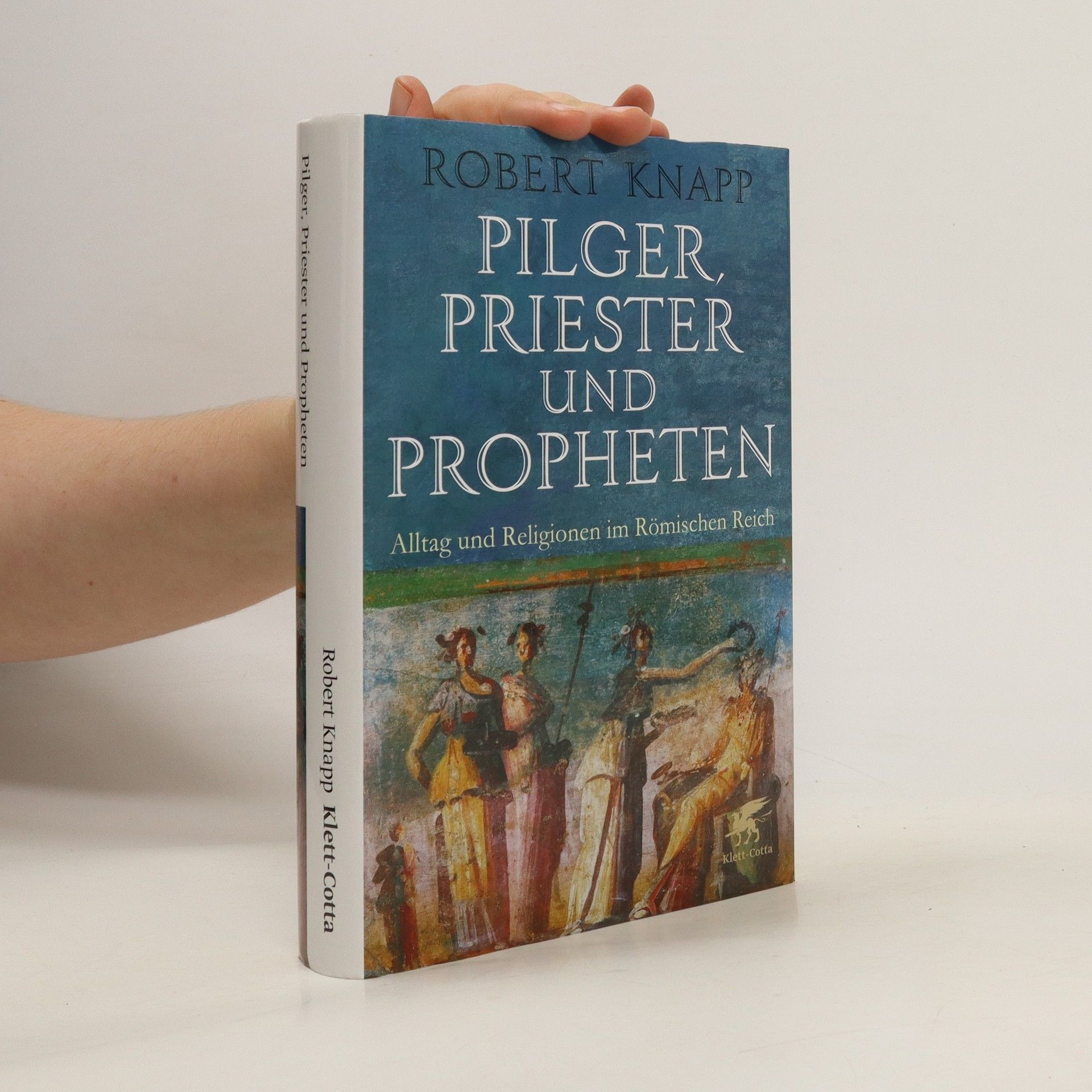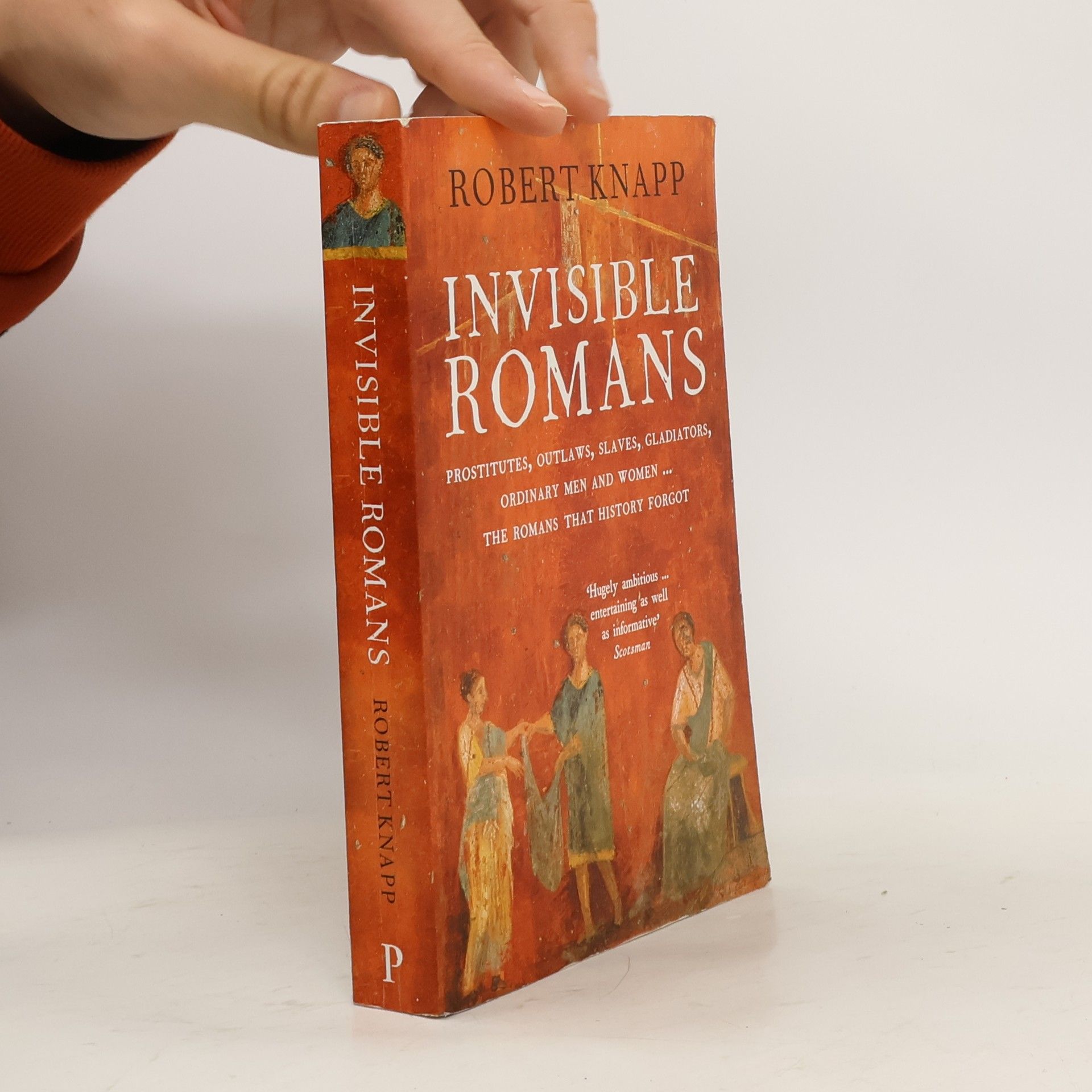Shows how everyday Romans sought to survive and thrive under the afflictions of disease, war, and violence, and to control their fates under powers that both oppressed and ignored them. In this book, the author seeks out the ordinary people who formed the fabric of everyday life in ancient Rome and the outlaws and pirates who lay beyond it.
Robert C. Knapp Livres




Clare, 1865-1940
- 130pages
- 5 heures de lecture
Set in mid-19th century Michigan, the narrative explores the transformation of a once wild landscape into a bustling lumber hub. The story highlights the impact of population growth and the timber industry's rise, focusing on Clare as a pivotal location during this period of change. It delves into the lives of trappers, Native Americans, and the influx of settlers, showcasing the clash of cultures and the environmental consequences of industrial expansion.
Robert Knapp holt römische »Durchschnittsbürger« und Menschen vom unteren Rand der Gesellschaft aus dem Schatten der Geschichte. In seinem meisterhaft erzählten Buch revidiert er dabei zahlreiche Urteile, die die Geschichtsschreibung bis heute etwa von Cicero oder Tacitus übernommen hat. Das Bild, das die römische Elite von ihrer Gesellschaft zeichnete und das die Geschichte bis heute fortschreibt, hatte mit der Wirklichkeit der meisten Einwohner des Römischen Reiches sehr wenig zu tun. Denn die Quellen für dieses Geschichtsbild entstammen sämtlich der Oberschicht, die nur 0,5 Prozent der Gesamtbevölkerung im Römischen Reich ausmachte, aber etwa 80 Prozent des Vermögens besaß. Die restlichen 99,5 Prozent - um Christi Geburt geschätzt etwa 50 bis 60 Millionen Einwohner - sind von der Geschichte vergessen. In neun Kapiteln zeichnet der Autor ein Bild vom Leben, Arbeiten und Sterben dieser Männer und Frauen: Arme Bürger und einfache Leute, Sklaven, Freigelassene und Soldaten, Prostituierte, Gladiatoren, Banditen und Piraten.
Souverän und lebensnah erkundet Robert Knapp die religiösen Alltagserfahrungen der einfachen Menschen in der antiken Welt. Zugleich zeigt er, wie die unterschiedlichen Gesellschaftsschichten an »übernatürliche Kräfte« glaubten und wie die Welt der Götter ihre Lebenswirklichkeit prägte. Juden, Christen und Heiden: In ihren Nöten und Bedürfnissen unterschieden sich die Menschen der antiken Welt kaum. Meisterhaft schildert Robert Knapp die religiösen Glaubenswelten, Vorstellungen und magischen Praktiken, mit denen die Menschen ihren Alltag und ihre Sorgen bewältigten. Zugleich zeichnet er ein farbiges Bild von den Riten und Kulten im Römischen Reich und zeigt, wie sich die einfachen Leute täglich mit dem »Übernatürlichen« auseinandersetzten. In dieser spannenden und informativen Darstellung werden die Gemeinsamkeiten von Heiden, Juden und Christen deutlich. Robert Knapp führt uns in eine fremde Welt und enthüllt die Hoffnungen, Sorgen und Ängste der einfachen Menschen im Römischen Reich. Ein großartiges Panorama der antiken Welt, bevölkert von Priestern, Propheten, Wundertätern und Wahrsagern.